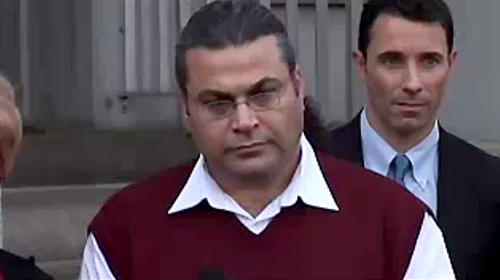
Almost nine years ago, Khaled El-Masri was abducted, forcibly disappeared, and tortured by Macedonian authorities and the CIA. Until today, his well-documented claims of abuse had yet to be affirmed by any authorities responsible for his mistreatment or by a court of law. In a landmark ruling today, the European Court of Human Rights (ECtHR) ruled that El-Masri’s treatment at the Macedonia airport by U.S. agents in cooperation with Macedonian officials “amounted to torture.” The court also found that while in CIA custody El-Masri was subjected to abuses including sodomy, forced nudity, total sensory deprivation, solitary confinement, force feeding, physical assault, sleep deprivation, inadequate food and water and denial of medical care in violation of the European Convention on Human Rights, and that his entire period of captivity constituted a “forced disappearance” in violation of international law. According to ACLU Human Rights Program Director Jamil Dakwar, the ruling represents “a huge victory for justice and the rule of law.” He added:
Today’s landmark decision is a stark reminder of America's utter failure to hold its own officials accountable for serious violations of both U.S. and international law. Continued lack of accountability is turning the United States into an outlier among its European allies.
The ruling makes it harder for the United States to continue burying its head in the sand and ignoring domestic and global calls for full accountability for torture. This remarkable decision will no doubt put greater pressure on European nations to fully account for their complicity in cooperating with the illegal CIA 'extraordinary rendition' program, and to hold responsible those who violated the human rights of El-Masri and those like him.
Mistaken for an Al Qaeda operative with a similar name, El-Masri was abducted at a border crossing while vacationing in Macedonia on New Year’s Eve in 2003 and held incommunicado for 23 days. He was subsequently transferred into CIA custody and, as part of the U.S. “extraordinary rendition” program, flown to Afghanistan where he was secretly held, tortured and abused for four months. At the end of his detention, El-Masri was dropped on a roadside in Albania. He was never charged with any crime, never received an apology, and was never afforded an opportunity for redress.

The ECtHR today held that El-Masri’s account of seizure by Macedonian authorities and rendition to Afghanistan by the CIA for torture and abuse was “established beyond reasonable doubt,” and that Macedonia violated the prohibition against torture and inhuman or degrading treatment for its role in El-Masri’s abduction. The court awarded El-Masri 60,000 euros (about $78,000). In contrast, the UK government announced today that it had agreed to pay 2.2 million pounds (about $3.5 million) to Sami al-Saadi, a Libyan dissident, and his family, who say MI6 was involved in their illegal rendition.
James Goldston, executive director at the Open Society Justice Initiative, who argued the case before the Court, hailed today’s ruling as “a comprehensive condemnation of the worst aspects of the post-9/11 war on terror tactics that were employed by the C.I.A. and governments who cooperated with them.” El-Masri’s German lawyer, Manfred Gnjidic, said that, “Macedonia was only the henchman of the great powers” and asked, “What is with the big fish, with Germany, with the U.S.A.? All he ever wanted was to know why this was done to him and an apology.”
The ruling highlights the lack of accountability for U.S. officials responsible for the abuse of El-Masri and others. AU.S. federal lawsuit filed by the ACLU on El-Masri’s behalf was dismissed on “state secret” grounds, and the Obama administration has yet to respond to a 2008 ACLU petition filed on El-Masri’s behalf in the Inter-American Commission on Human Rights. As Dakwar told the New York Times, the case before the commission “gives the Obama administration the opportunity to acknowledge the egregious violations against Khaled, offer an official apology and reparation.”
Learn more about accountability for torture: Sign up for breaking news alerts, follow us on Twitter, and like us on Facebook.


